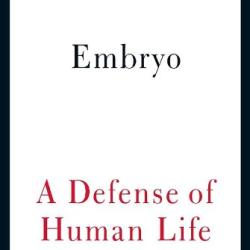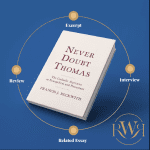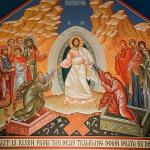Emily DeArdo, who is not just my hero but also my friend, writes the thing you need to read today, and probably every day:
This is dangerous garbage. To tell someone who is desperate for healing that they aren’t praying enough, aren’t trusting enough, aren’t doing enough—that’s crap! It’s like the people who have told me that the reason I have CF is because I haven’t prayed enough. It smacks of the attitude of “Oh, there, there, just do X and all will be FINE!”
What? No.
What, precisely, did Jesus “do” to “earn” his death? Did he not have total trust in God? Did Mary lack faith and prayer, or the willingness to give total praise to God, as she watched her son die?
Jesus says in the Gospel of John that the blind man is blind because that’s how he’ll glorify God.
In my book I write about this dangerous attitude. And I also write about how God uses suffering to draw us closer to him, deeper into prayer, and further into a relationship of trust.
Prayer is not magic. God isn’t a vending machine.
If you are suffering, do not believe that somehow, you are failing.
Read the whole thing. And then bookmark it, or print it out, or make it your start page, or just memorize it, yes?
***
At the root of the “if you would just” spirituality is the idea that we, or some other human, is personally responsible for every bad thing that happens to us. Like many terrible ideas, it’s rooted in a smidgen of truth: Humans do have the ability to think and choose and act, and our actions do have consequences. We do cooperate with the will of God. We do have the ability to change the natural and the supernatural world for better or for worse. Prayer is powerful.
But, part that’s missing: Our human powers are finite.
We can do some things, but we can’t do everything.
The flip side of the mystery of suffering is the mystery of free will and cooperation with Grace: God allows us to do real work, to make real decisions that have real eternal consequences, but everything we do is part of the bigger tableau of absolute reliance on God.
Yes, of course, it is sinful to neglect the real responsibilities that we have towards God, ourselves, and others. Absolutely. But when we play at the “if you would just” game, now we’re stepping into the big-time sin stakes, because we are moving back to the original sin: Human pride and consequent idolatry by claiming God’s rights and responsibilities for our own.
You as a human being have a little bit of power. You are responsible for how you use that power. But you do not have God’s power. Therefore, when you allow yourself to feel guilty or responsible for things that you do not actually control you are being idolatrous. You’re acting like you are God. And that’s bad for you and will seriously mess you up.
Luckily, God loves you and knows your weakness and knows when you’re honestly just trying to do the right thing and, you know, you screw it up. Probably has good reasons He didn’t make you omnipotent yesterday afternoon, eh? Acknowledge your sin, confess your sin, resolve not to do it again, allow yourself to experience God’s absolute love for you. Lather, rinse, repeat. Merry Christmas.

Cover art: Living Memento Mori by Emily M. DeArdo, Ave Maria Press. I have no opinion whether Die Hard is a Christmas movie, but yes, absolutely, this is a Christmas book. And a Lent book, and an Ordinary Time book. Basically any time you might be an eternal soul animating a mortal and suffering-prone body, this book is for you. Short, readable, down-to-earth, suitable for ordinary pewsitters. Subscribe to Ave Maria’s mailing list and you’ll regularly receive coupons and promo codes; follow @EmDeArdo on Twitter and she’ll let you know any time the book goes on sale.
















